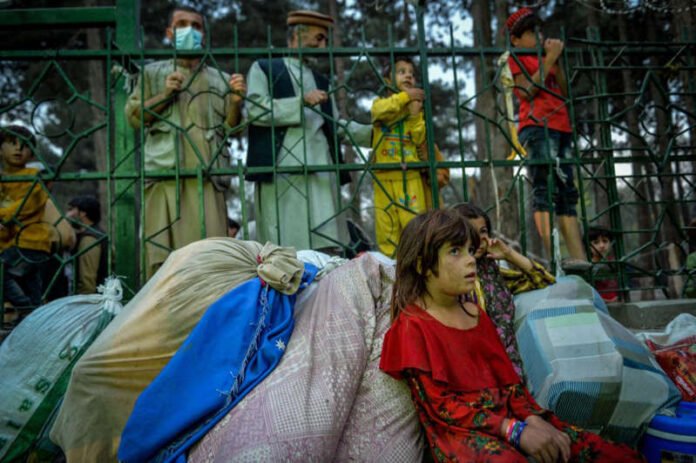A former Canadian Forces interpreter who managed to escape to Pakistan this month is pleading with the Canadian government to speed up the processing of visas for the thousands of vulnerable Afghans hoping to get to Canada.
Maroof — which is not his real name — spoke to Global News from Islamabad, Pakistan.https://www.dianomi.com/smartads.epl?id=3533
He and 12 family members arrived in Pakistan last week, having received their travel documents from Immigration, Refugees and Citizenship Canada (IRCC).
Read more: Afghan journalist in B.C. fears for the safety of his colleagues in Afghanistan
He said he fears that those left behind will face retribution from the Taliban before they get their Canadian visas.
“They are still under threat and they are [scared] and they have lost their minds right now, and they do not know what will happen, and still they are awaiting IRCC confirmation letters,” Maroof said.
“Thanks again to the Canadian veterans. They are still helping those people, but they are in big trouble, and what I would say is they are not in a good mood.”
The journey of Maroof’s family from a Kabul safe house to Pakistan was facilitated by donations to the Canadian NGO Veterans Transition Network (VTN).
The veterans’ charity said it has been supporting around 2,000 people in safe houses in Kabul since the Taliban took control of the Afghan capital in August.
VTN said it knows of up to 9,000 Afghans awaiting visa approvals, many of whom have not even been given an application reference number.
Maroof said he knows around 30 families from Kandahar Province who are now in those safe houses in Kabul; many of whom sold their homes and possessions, anticipating that they would be able to get to Canada during the scrambled airlift operation in August.
“What [money] they had, they spent — all those over there in Kabul [in] the last two months,” Maroof said.
“They [have] many money problems and they are just waiting and waiting, and to wait kills somebody.”
Veterans’ Frustrations
The founder of the VTN, Afghan veteran Tim Laidler, said he wants the Canadian government to actively help in getting people out of Afghanistan before the security situation deteriorates further.
Laidler said the number Afghan people the VTN has helped move out of Afghanistan since the international airlifts ended in August is “in the hundreds.”
Global News sent questions to IRCC on Monday regarding the numbers of Afghans, bound for Canada, who have escaped the country in September.
IRCC did not respond before this story was published.
Earlier this month, U.S. media outlets reported that the U.S. State Department began coordinating with U.S. veterans’ efforts to extract Americans and Afghans associated with the U.S. mission.
“It’s hard to go to sleep every night worrying about all those families who are stuck, just waiting for IRCC to issue them their documents to let them get out of the country,” Laidler said.
“The extraordinarily generous Canadian public have saved thousands of lives in Afghanistan to date. We need to move to a larger operation to get them out. And that’s the piece that we need partnership with the Canadian government on.”
Laidler said his greatest fear is that Taliban hardliners will soon try to exact punishments on any Afghans known to have helped Western forces and NGOs, or against members of vulnerable groups, such as those in the LGBTQ2 community, religious minorities and journalists.
“The problem with these targeted groups is that if they shelter in place, they’re sheltering in their known address. So they’ve had to move because they’ve had people knocking at the doors, asking for them,” Laidler said.
“There’s a number of bottlenecks for getting people out at the moment — all of them paperwork, some of them Canadian government, some of them other governments.”
On Sept. 27, Canadian Foreign Affairs Minister Marc Garneau said Canada is doubling its commitment for resettling Afghan refugees to 40,000 from 20,000.
“How many of them are going to be here by Christmas? That’s what we want to know. If we get half in by Christmas, I think that’s a win,” Laidler said.
“At the pace we’re moving now, it’s going to be years before we even get close to 40,000 people from Afghanistan in the country. And my fear is that we start taking those 40,000, not from Afghanistan, [but] we start taking them from outside of Afghanistan, and then start playing that.”
































